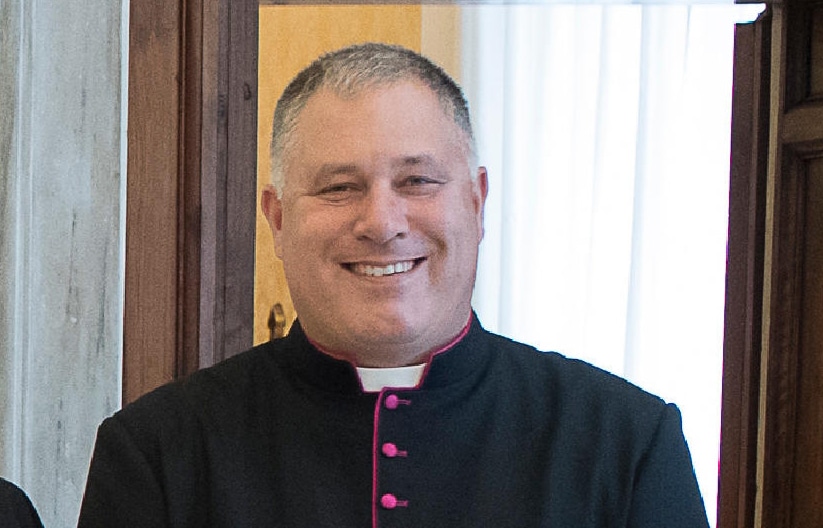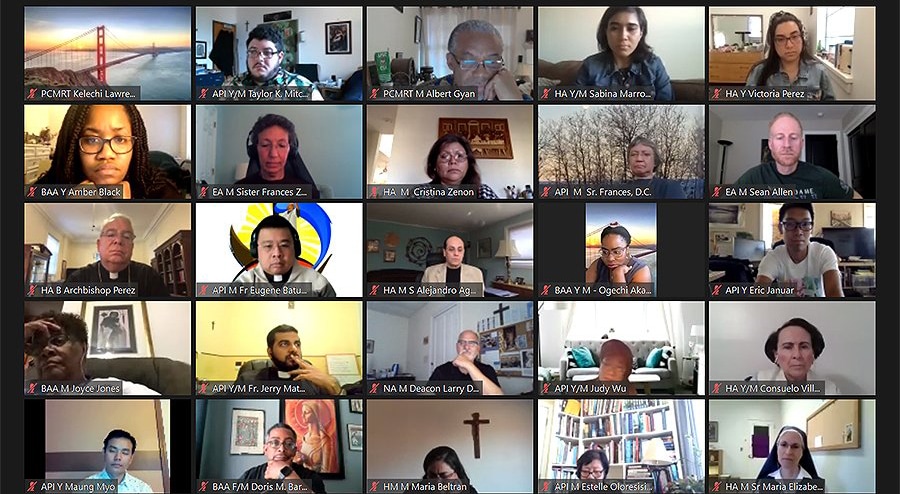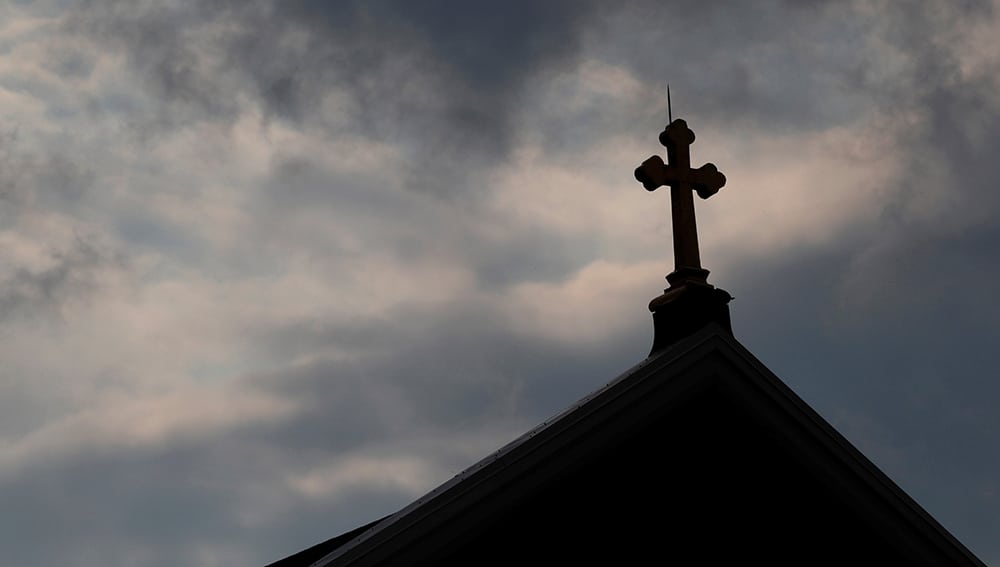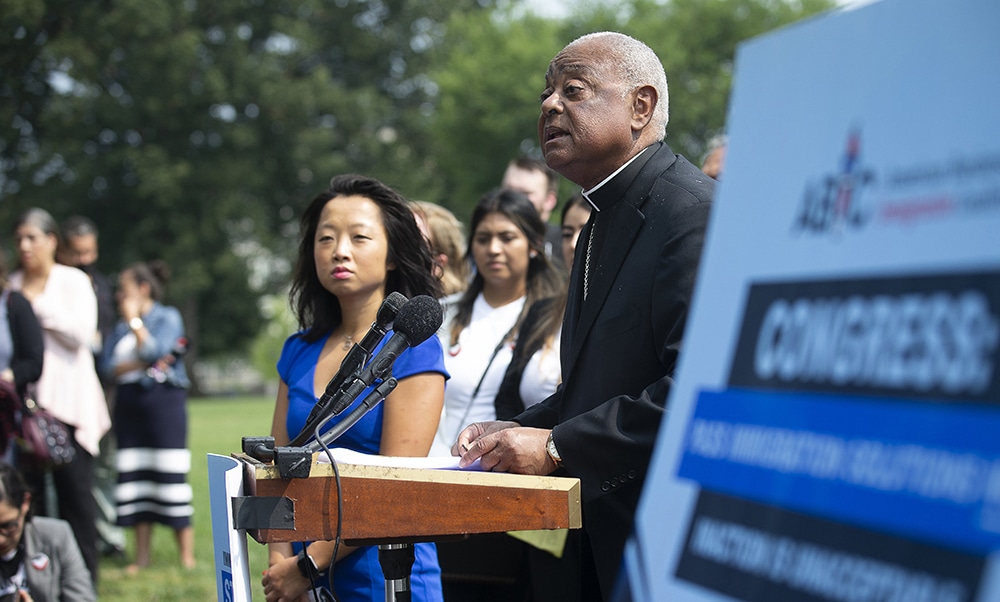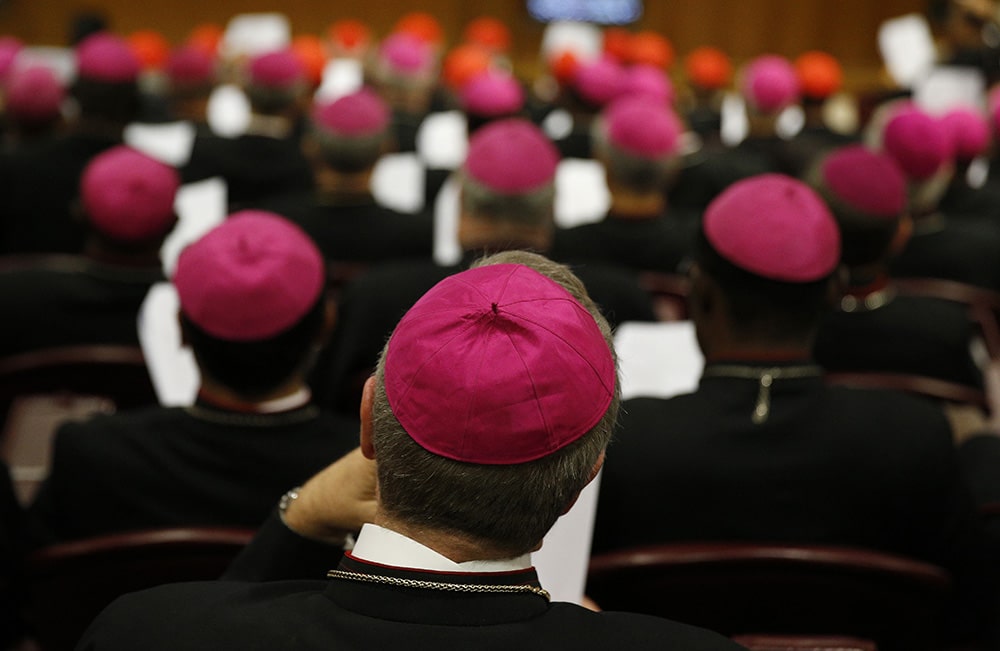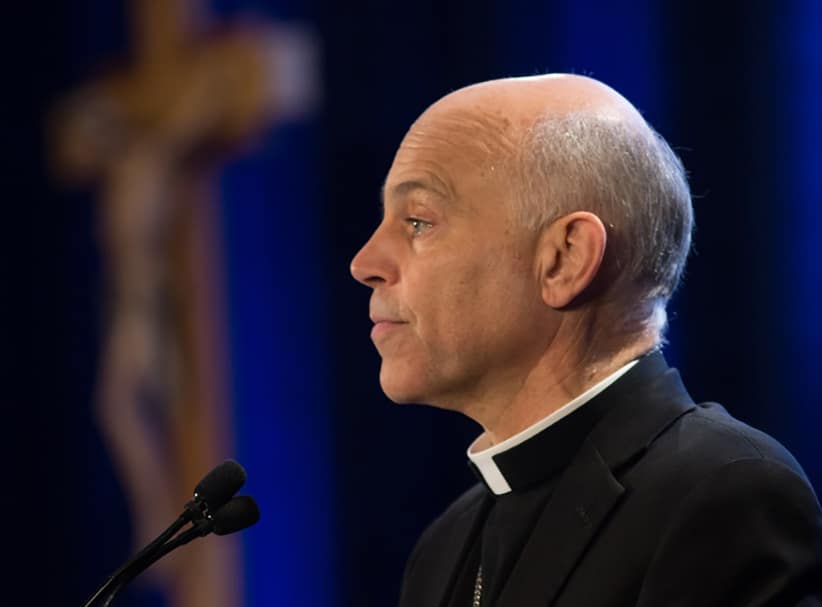It was a scandal when news broke that U.S. Gen. David Petraeus had involved himself in an extramarital affair with his erstwhile biographer, Paula Broadwell. Part of the reason for the scandal was that it was also a major security breach.
The affair itself exposed the senior officer to personal and official blackmail, while the poor decisions he made during his affair led to a major felony investigation that ended in a plea deal on misdemeanor charges, which satisfied exactly no one.
I thought of that sad recent episode in U.S. history when I read the story about Msgr. Jeffrey Burrill in The Pillar on Tuesday, alleging improper behavior that involved the use of Grindr, a software application that bills itself as “the world’s largest social networking app for gay, bi, trans and queer people.” Grindr is designed to facilitate in-person meetings among users, who frequently employ the app to arrange fleeting sexual encounters.
The Pillar broke the story on Tuesday, shortly after the U.S. Conference of Catholic Bishops announced Msgr. Burrill’s resignation. The Pillar’s analysis of app data showed that Msgr. Burrill visited gay venues and private residences while using the Grindr app between 2018 and 2020, sometimes while on official business.
“On Monday,” wrote Archbishop José H. Gomez of Los Angeles, president of the USCCB, in a memo to his fellow bishops, “we became aware of impending media reports alleging possible improper behavior by Msgr. Burrill” — the general secretary of the USCCB.
“What was shared with us did not include allegations of misconduct with minors,” Archbishop Gomez’s statement continued. “However, in order to avoid becoming a distraction to the operations and ongoing work of the conference, Monsignor has resigned effective immediately.”
A distraction it undeniably would have been, to say the very least. Journalists presented the conference with evidence that a senior cleric, billeted to a very powerful and sensitive post, has been engaged in behavior that is seriously ambiguous at best and very risky in any case. The evidence showed that the fellow at least occasionally used company resources during his extracurricular activities. The evidence showed that he was carrying on at least sometimes on the company’s dime. One supposes that the potential for major security breaches and all manner of chicanery from personal blackmail to policy manipulation are likely to prove distracting to any outfit.
“The conference takes all allegations of misconduct seriously,” the bishops’ statement says, “and will pursue all appropriate steps to address them.”
What are the appropriate steps, though?
One would think they’d include a thorough and detailed investigation of his entire record of service to the conference, and that they’d be apt to answer questions about why the conference didn’t know about Burrill’s behavior, or at least suspect it. If that sort of thing makes you nervous, it should.
The disturbing thing is not, however, any issue regarding scrutiny of Msgr. Burrill’s private life. Msgr. Burrill is a public figure, a man with offices of power and trust in the Church, and in the principal organ of Church leadership in the United States. The disturbing thing is that he carried on so much for so long. Was no one really the wiser?
In any case, the privacy rights of public figures are somewhat attenuated. This is well established. That the private conduct of persons with offices of public trust is available to scrutiny is likewise firmly established. That the public and private conduct of public persons is fair game whenever it fairly interests the commonweal is incapable of doubt.
Considered strictly in themselves, the set of Msgr. Burrill’s apparently very poor life choices are his own business. If Msgr. Burrill had been a private citizen, or even the well-known senior executive at WidgetCorp., his behavior wouldn’t be especially newsworthy. But the thing is, Msgr. Burrill is not a private citizen — or at least he wasn’t until Tuesday. Until it became clear that The Pillar was going to run the story, Msgr. Burrill was in charge of coordinating “all administrative matters of the conference.” He was “responsible for the coordination of the work of the conference committees and staff.” He was responsible for coordinating “the planning and operational activities of the various secretariats and offices in support of the work of the conference.”
The Pillar’s use of mined data has come in for scrutiny, some of it critical. That’s fine, and to be expected. Navigating life in a wireless web of digital information is challenging on a good day. When it comes to the brave new world of ones and zeroes, we’re all of us still mostly feeling around in the dark. It is also perfectly reasonable and even necessary to wonder why whoever brought the data to The Pillar was interested in bringing it before the public.
There’s a famous quip, frequently attributed to George Orwell, according to which journalism is printing something someone doesn’t want to see in print. “Everything else,” the saying concludes, “is public relations.” That saying has achieved the status of a maxim in journalism, and it’s true as far as it goes, but it leaves some things unsaid.
If journalism is printing what someone doesn’t want to see in print, good journalism always tells people something they’re better off knowing. If there’s always someone who doesn’t want something in print, there’s also usually someone who does. Why anyone wants information before the public is rarely a matter of perfect indifference, but that’s another story.
Was this good journalism? It’s a point of debate. The Pillar’s story — its origin, development, and journey to publication — is the stuff over which journalists and readers are reasonably tempted to wrangle with for hours. Readers are also concerned about a world in which the right money will get you intimate details of just about anyone’s life, and give you the wherewithal to ruin it, and they’re not wrong, either.
If some are left doubting why it was important for people to know about what it appears Msgr. Burrill has been up to, however, then consider that he might still be general secretary of the USCCB if The Pillar hadn’t published.
Christopher Altieri writes from Connecticut.

